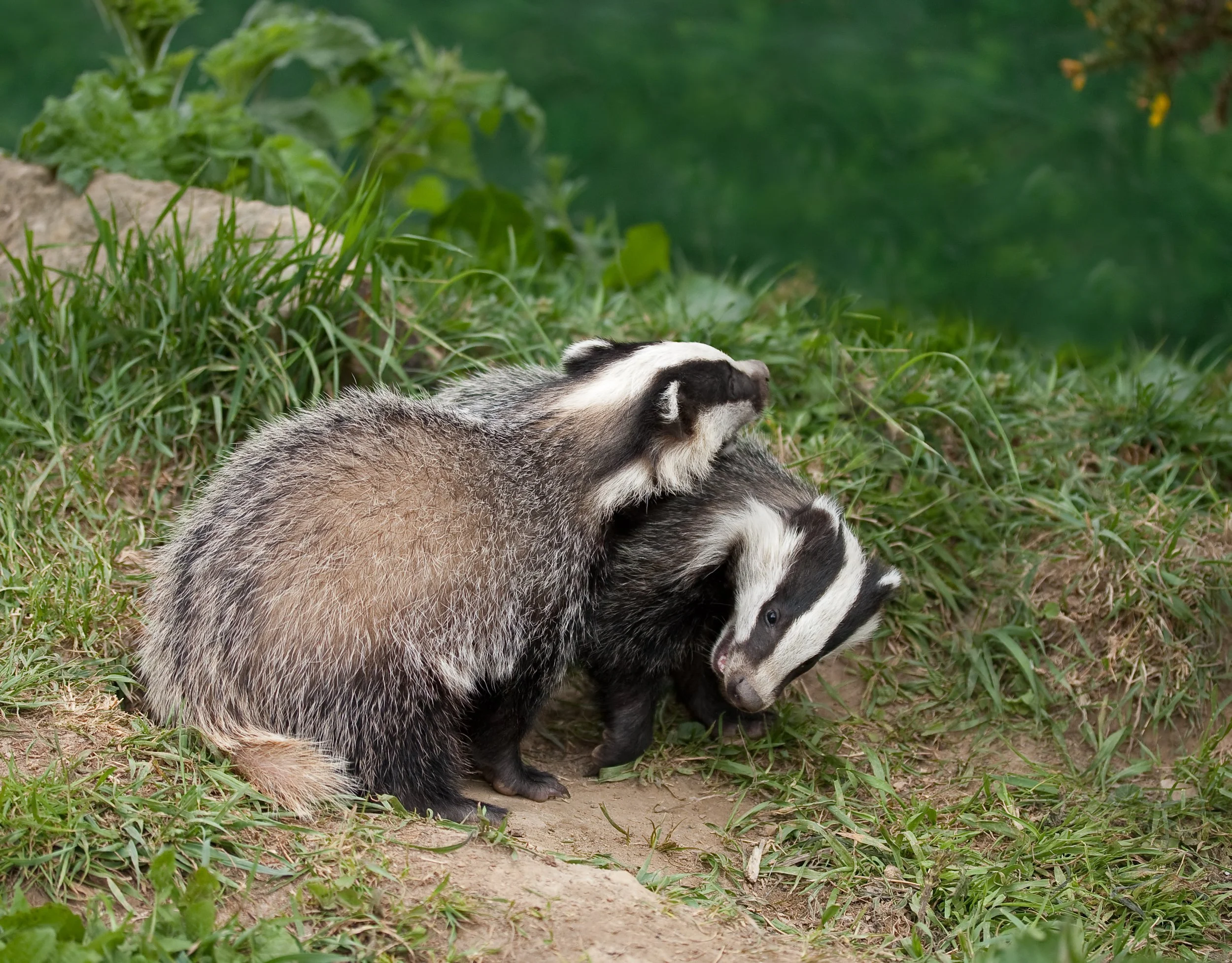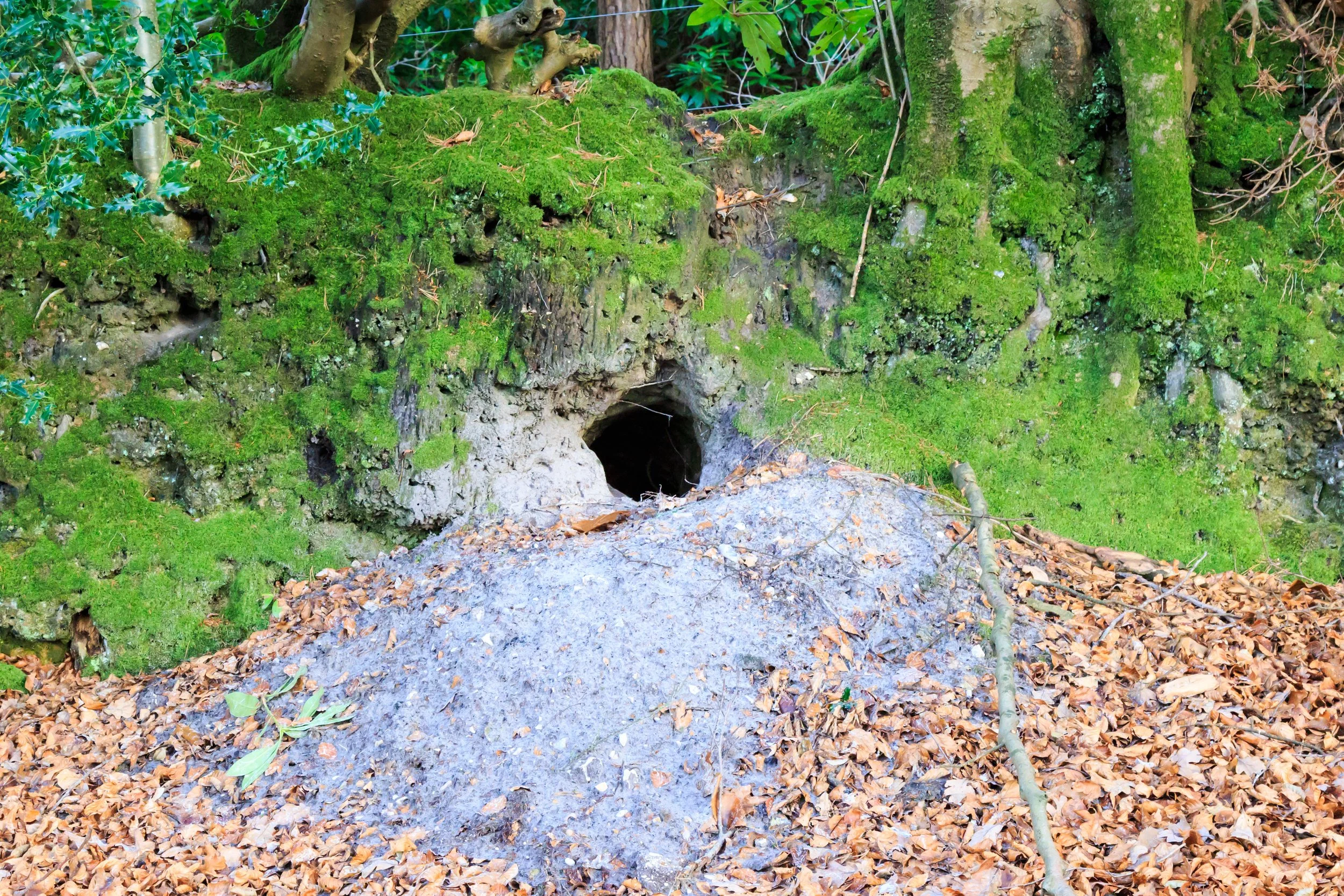
Badger Surveys
Badgers & the Law
European Badgers can be found throughout the UK, although some regions, such as south and south-west England, have higher numbers. They live in setts, which vary in size from a single infrequently used hole to a main sett with extensive networks of tunnels and hundreds of entrance holes.
Badgers and their setts are protected under the Protection of Badgers Act 1992 and the Wildlife and Countryside Act 1981 (as amended). These laws make it an offence to kill, injure, disturb or damage a sett without appropriate survey and licence measures in place.
When is a badger survey needed?
A badger survey is typically required where a proposed development could disturb badgers or affect a badger sett, either directly or indirectly. This includes works involving ground disturbance, vegetation clearance, demolition, new access routes, or changes to land use near woodland, hedgerows, embankments, or field margins that may be used by badgers.
Surveys are often requested to support planning applications where badger activity is suspected on or close to a site, or where development could result in disturbance to setts during construction. Early assessment helps identify constraints, inform mitigation where needed, and reduce the risk of delays or legal issues later in the planning process.
Badger surveys
Initial assessment
During the Extended Phase I Survey, the site is searched for any signs of badger use and particularly any badger setts that may be on site. If a badger sett is found and the plans will have an impact within 20 metres of it, Phase II surveys may be required.
Phase II surveys
If a badger sett is located within the boundaries of a planning scheme, Phase II badger surveys using a camera trap may be required to determine if a sett is active and what type of sett it is. These surveys may be undertaken at any time of year, however February-April and October-November are the most suitable times to do the survey.
Badger survey work can be undertaken at most times of year, but activity levels and detectability vary seasonally. Where setts are identified near development zones, timing should be planned carefully to avoid breeding seasons and to align with best practice survey guidance.

Pre-construction walkover survey
Since badgers will move and can establish a sett quickly, even if there were no badgers during the initial survey it is recommended to have an updating badger walkover survey within a couple of weeks before construction is expected to start to ensure there are no new setts that may be impacted.
Licence to close a badger sett
If a badger sett is present on site and needs to be affected by the proposed works, we can support the licence application required to close a sett. Our approach is pragmatic and proportionate, focusing on humane sett closure carried out during the appropriate season and in line with best practice guidance. Where a main badger sett is affected, we can also assist with mitigation requirements, including the design and creation of an artificial badger sett where necessary.
Badger survey reports record evidence of badger presence or absence and classify any setts identified. These reports are commonly required to support planning submissions and help Local Planning Authorities assess potential ecological impacts, as well as determine whether licensing or mitigation measures are needed..

Our Experience with Badgers
Our team is experienced in surveying for badgers and badger setts and have a successful history of achieving licences to mitigate a site for badgers. To discuss your specific site with an ecologist, please contact us.
FAQ’s
-
If there is potential for badgers or setts to be present on or near your site, a badger survey is recommended early in the planning process. Surveys help demonstrate compliance with wildlife protection laws and planning policy.
-
Badger surveys typically include initial site assessment, identification of sett entrances, evidence surveys for activity, and classification of sett types. More detailed surveys may use camera traps or bait-marking where needed.
-
If setts are affected by works, mitigation may include exclusion under licence and relocation or construction of artificial setts. Our team can support you through survey, reporting and licence application as required.
Have more questions?



